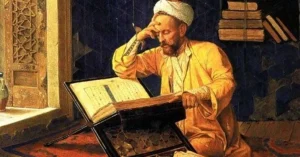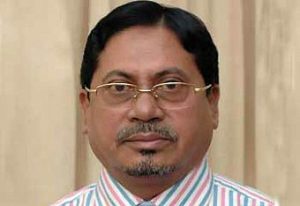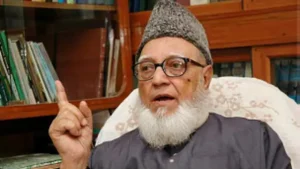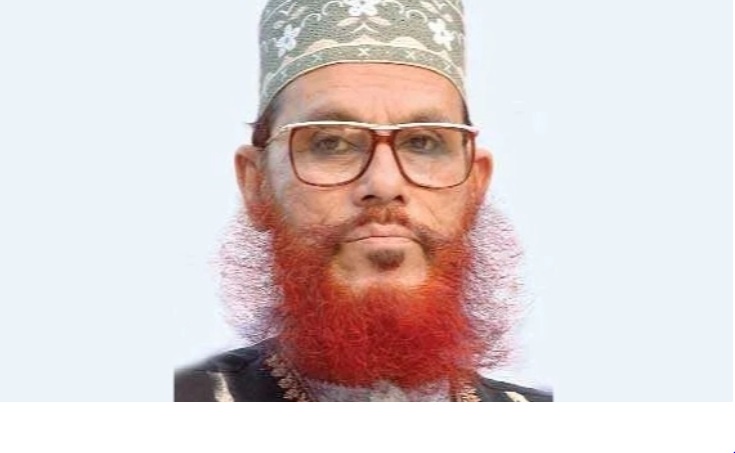
The Day of Departure and Global Mourning
The Final Moments and Unparalleled Reaction to the Passing of Shahid Allama Delwar Hossain Sayeedi (رحمه الله)
1. The Day of Passing: Monday Night, 14 August 2023
On the night of Monday, 14 August 2023, Allama Delwar Hossain Sayeedi (رحمه الله) left this world at the age of 83 while in government custody.
- That day, he was suddenly transferred from Kashimpur Central Jail to BSMMU Hospital (Bangabandhu Sheikh Mujib Medical University) after complaining of chest pain and breathing difficulty.
- Despite being gravely ill, his family was not informed in time, and they did not get a final chance to speak or meet with him before his death.
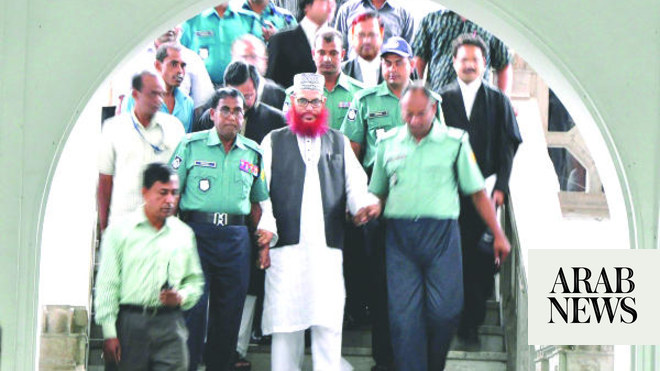
He died alone, shackled by injustice, yet embraced by the mercy of his Lord.
— Anonymous Islamic Scholar
His death was officially confirmed at 8:40 PM, and news quickly spread across Bangladesh and the global Muslim community.
2. Denial of Final Family Visit
One of the most heartbreaking aspects of his passing was the authorities’ refusal to allow any of his immediate family to meet him in his final moments.
- Neither his wife, nor sons, nor closest associates were granted permission to be at his bedside.
- Several family members who rushed to the hospital were barred by police, and later escorted under strict surveillance.
This incident deeply shocked the public, as even ordinary prisoners are customarily allowed last family meetings under humane protocols.
“Even a murderer gets a final embrace. What had he done to deserve less?” — Protester in Dhaka
3. Refusal to Allow Public Janazah
Following his death, the demand for a public janazah (funeral prayer) was overwhelming:
- Millions wanted to offer janazah in Dhaka’s Shahbagh, Baitul Mukarram, or Suhrawardy Udyan.
- However, the government imposed severe restrictions, citing “security concerns.”
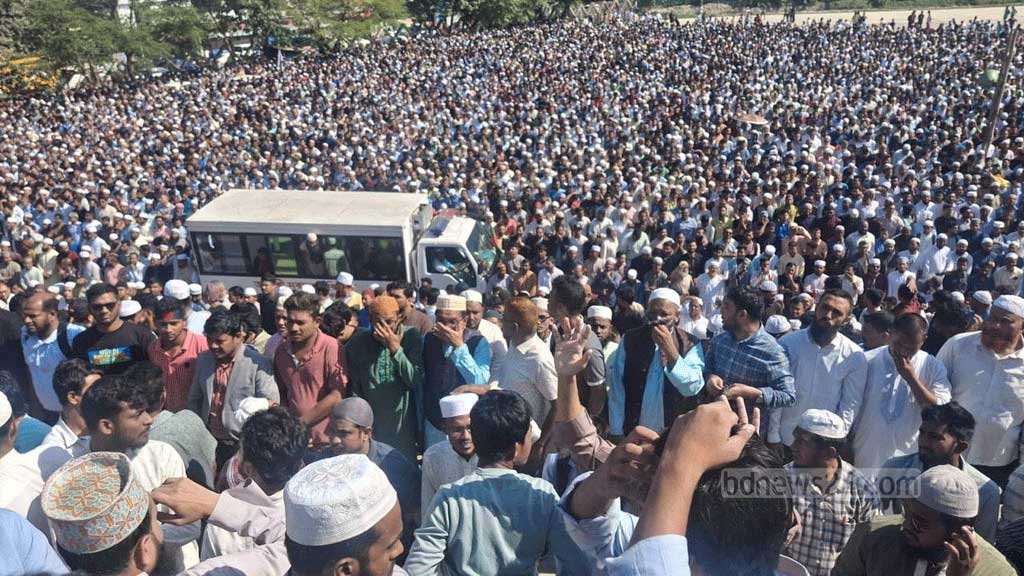
The body was instead transported in secrecy to his hometown Pirojpur, where the janazah was conducted at 9 AM on 15 August 2023 under heavy police control, with limited attendees.
- Even local villagers were barred from approaching the burial ground.
- Roads were blocked, internet access was reportedly throttled in surrounding areas, and many attendees were harassed or detained.
4. Online Funeral: Millions in Digital Participation
What transpired next was unprecedented in the history of Bangladesh:
- As public janazah was obstructed, millions of Muslims around the world offered Salat al-Gha’ib (funeral in absentia).
- Online platforms such as YouTube, Facebook Live, and Islamic forums hosted massive virtual janazahs.
📌 Key Digital Reactions:
- Over 3 million people joined one live janazah stream on YouTube within 24 hours.
- Hashtags like #SayeediShaheed, #MartyrSayeedi, and #VoiceOfIslam trended in Bangladesh, Pakistan, Malaysia, UK, and Qatar.
- Thousands of Islamic scholars, imams, and ordinary Muslims posted tribute videos, duas, and sermons in his memory.
“He was denied a funeral on earth, but angels lined up in the skies.”
— Sheikh from Turkey
5. Global Scholarly and Public Reaction
Despite state censorship, leading scholars and Islamic organizations around the world paid tribute to his legacy.
🌍 Statements and Tributes Came From:
- Darul Uloom Karachi (Pakistan)
- International Union of Muslim Scholars (Qatar)
- Majlis-e-Ulama-e-Hind (India)
- Renowned scholars like Mufti Taqi Usmani, Shaykh Yasir Qadhi, Dr. Israr Ahmad’s foundation, and others expressed condolences.
Many referred to him as “Shaheed-e-Haq” (Martyr of Truth) and “Imam of our time”.
6. National Grief and Government Response
While hundreds of thousands mourned peacefully, the government response remained strict and suppressive:
- Banned online content praising Sayeedi.
- Arrested or harassed individuals who posted tributes.
- Censored media coverage—no mainstream newspaper published a front-page obituary.
Yet, his name echoed in whispers across homes, in Friday sermons, and in students’ tears in madrasas from Dhaka to Dinajpur.
Delwar Hossain Sayeedi (رحمه الله)’s death marked not just the end of a man—but the rise of a symbol of resilience, spiritual endurance, and truth under oppression.
His departure became a powerful reminder of the trials faced by Islamic scholars in modern regimes, and a rallying point for freedom of faith.
“He died with no crime proven, but with the Qur’an in his heart and truth on his tongue.”
— Eulogy from an anonymous student
Suggested Footnotes / References
[1] “Official Press Statement from Jamaat-e-Islami”, 15 August 2023
[2] Family interview, Dhaka Tribune (unofficial excerpt)
[3] YouTube: Live Janazah and Duas, Archive (2023)
[4] Facebook Pages: Sayeedi Shaheed Archive
[5] Testimonies from residents of Pirojpur (Collected anonymously)

